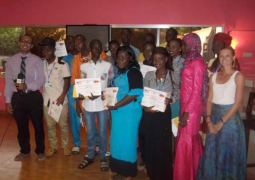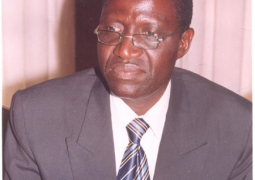The forum, which marked the end of the project, brought stakeholders from different institutions at a hotel in Kololi.
Speaking on the occasion, FAO representative in The Gambia, Perpetua Katepa Kalala, said the fisheries dependent communities in The Gambia, Sierra Leone and Senegal lack the requisite skills and knowledge in water and fisheries resource management, leading to overfishing and degradation of aquatic resources.
She said these affects the general resilience of the aquatic systems and further exacerbates the adverse effects of climate change on the livelihood of the populace which depend on these systems for food and as source of income.
Madam Kalala said fisheries dependent communities and individuals are highly sensitive to changes in fish availability resulting from climate variability and change.This is because of inefficient production and value chain operations tied with limited diversification of sources of income and overdependence on fishing and fishing related trade.
She said it is in this regard that the TCP was designed to support and promote climate change adaptation among value chain actors in selected artisanal fisheries communities in Sierra Leone, Senegal and The Gambia with a total budget of USD318,272.
The goal of the project was to address climate change issues that threaten the artisanal fisheries sector in the targeted countries.The capacities of various stakeholders will be built to better understand climate change issues and support its mainstreaming into fisheries development plans, policies and strategies.
The project also sought to reduce the vulnerability of thecommunities to the impact of climate change and document lessons learnt and experience gained for dissemination and for future replication and up-scaling.
The FAO representative said the overall objective of the two-year project was to enhance the resilience and adaptive capacity of fisheries livelihoods to climate change impacts and risk on artisanal marine fisheries communities in the targeted countries.
“The objective was to achieve key results centered on the facilitation of communities and stakeholders understanding of climate change impacts and vulnerabilities,” she said.
It can also be achieved through institutional and stakeholders capacity building and enhancing skills for better fisheries resources utilisation and management and promotion of climate change adaptation such as through fishery-based livelihood diversification, she added.
She said further that the workshop was held to bring together the project actors in the three beneficiary countries and create the platform to share information and experience during the project implementation.
Mohammed, interim executive director of West Africa Rural Foundation (WARF), said TCP has added value by providing a framework and mechanism for working with communities and diverse actors committed to development objectives of the continent in general and climate change in particular.





